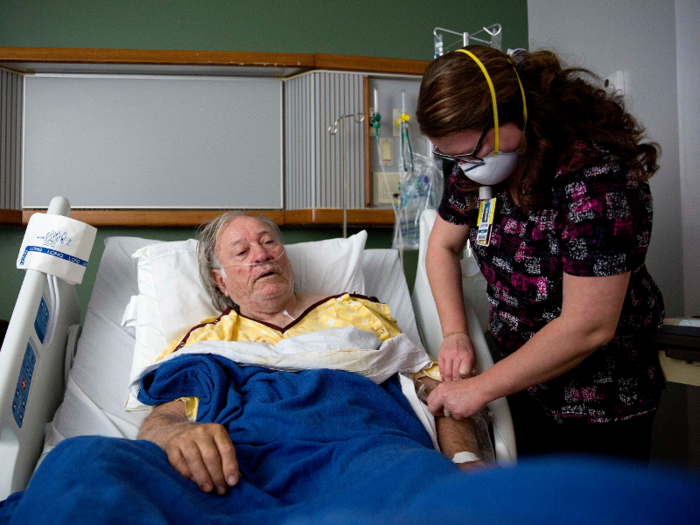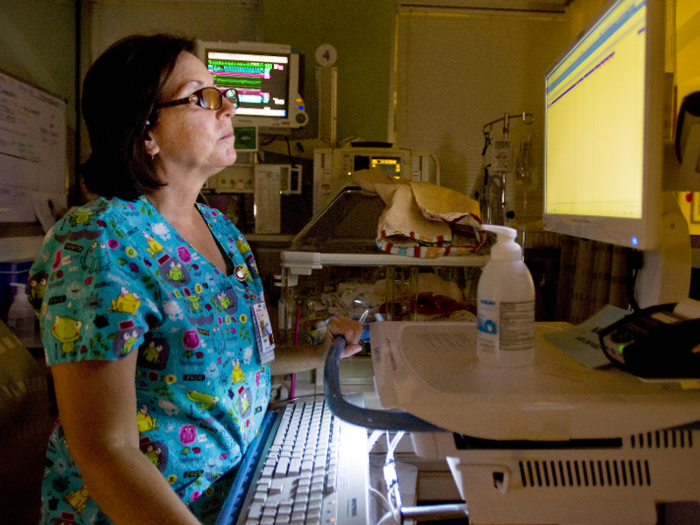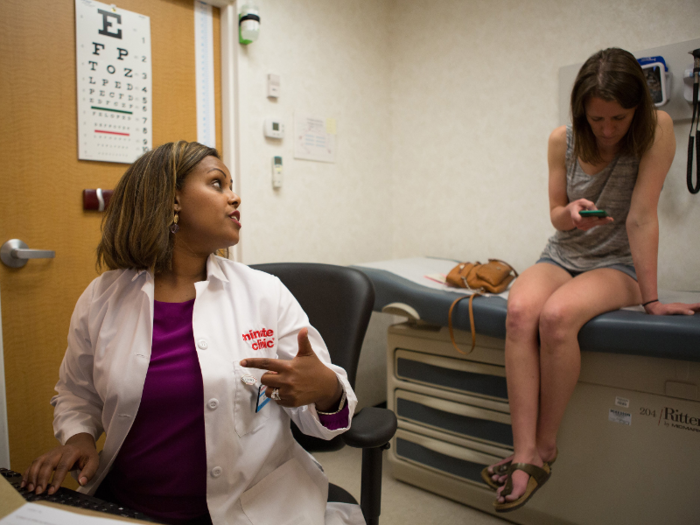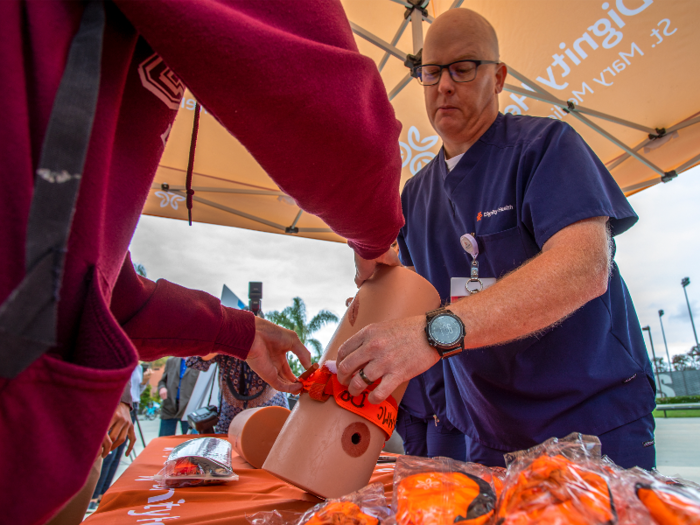- Home
- slideshows
- miscellaneous
- Nurses reveal 10 things they wish they could tell patients, but can't
Nurses reveal 10 things they wish they could tell patients, but can't
Nurses don't automatically love the doctors they work with.

A hospital isn't a hotel.

Many nurses said that patients think hospitals are a hotel, and treat nurses like maids who can stop work and grab a pillow at a moment's notice.
"Some really think the hospital is a hotel and we are just waiting to be at their service," said a nurse from Pennsylvania who wished to stay anonymous. "I will be walking down the hallway with blood from another patient and people will really stop me and ask me to bring them new sheets right now."
Nurses can't immediately tend to a sore throat when there are patients with more serious injuries.

Other nurses said patients with lesser illnesses don't always understand nurses need to tend to more intense injuries first.
Mayte, a nurse in Iowa, said she wishes she could tell patients they are not always the priority: "I could have another patient that needs me now or else something bad could happen," she told Business Insider. "I'm not brushing off their needs, but it's not a priority."
Sean, a nurse in New Mexico, wishes he could tell patients that their sore throat isn't something a nurse will prioritize: "The guy that we dragged in the front door who's been stabbed multiple times is an emergency. Sit down and wait or, better idea, go to your primary care or an urgent care in the morning."
Nurses are on a tight schedule, and tardiness makes their lives harder.

Patients showing up late often leads to more stress for nurses. Long, arduous shifts are already one of the hardest parts about being a nurse. One nurse told Business Insider she sometimes works for 12 hours without taking a bathroom break.
"When you show up an hour late, it affects the whole staff," said Melissa, a nurse for a hospital in Oklahoma.
Try to be more concise when relating your medical history.

Nurses are on a tight schedule and need to get medical history as quickly as possible, said Ann, a nurse from North Carolina. A nurse usually only has three minutes to document all the medications patients are on, along with medical history.
"We need that info concisely and quickly so we can get it all in the electronic medical record for the rest of the medical team," she told Business Insider. "Patients have a difficult time reporting concisely and accurately their history and medications."
Nurses are people, too.

Leslie, a licensed practical nurse from Florida, wishes she could tell patients that nurses have bad days where it's hard to care for patients.
Megan, a nurse from Ohio, wishes she could tell patients that she's only human: "I'm tired," she said. "I haven't had a break in eight hours, and I'm missing my daughter's first game tonight. My husband is sick and just lost his job. I am worried about my family. Nurses are people, we have families. I leave my family to care for you. Please be polite."
It pays to be polite.

Many nurses say one of the most challenging parts about their job is coping with occasional verbal abuse from patients.
"We treat you better when you're polite," said a nurse from Pennsylvania who wished to stay anonymous.
Nurses with medical degrees know more than patients with a smartphone.

Sean, a nurse from New Mexico, said it drives him nuts when patients think they know more than him because they watch medical dramas like "Grey's Anatomy." Nat, a nurse from Massachusetts, also said she's had patients think they know more than nurses because of what WebMD or Google told them.
"Please don't tell me where to put the IV," Laura, a registered nurse from Michigan, said. "If I don't think I can put it where you want, I should not put it there."
Don't yell out "nurse!"

Multiple nurses say they dislike when patients yell out "nurse" instead of using the call light, including Amy, a nurse in Texas, and Betsy, a nurse from Florida.
Nurses who "ring the call light 100 times to ask what time it is" aren't much better, said Susan, a nurse in Ohio.
Vaccinate your kids.

Finally, Susan, a school nurse in Ohio, wishes she could tell patients to vaccinate their children. From January to May 24 of this year, the CDC confirmed 940 individual cases of measles in 26 states, the greatest number since 1994. The US declared measles eliminated in 2000, but the disease arose again due to misinformation linking vaccines to autism.
Popular Right Now
Popular Keywords
Advertisement